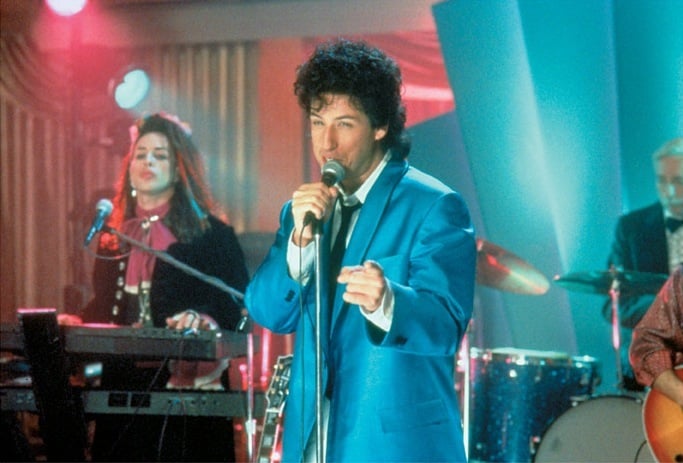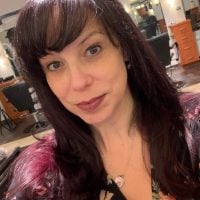Job interviews are nerve-racking, harrowing experiences.
When I was 24, I applied for a job and earned an interview for a position as a public relations assistant with a small public relations firm on the east side of Manhattan.
It was 1992, and I was eager to make a great first impression and present myself well so they would offer me the job. I wanted to break into the PR game and knew that I was qualified for the position, but I had to be able to convince them of that in my interview.
I had my new, tailored suit cleaned—the black one with the short jacket and pleated, knee-length skirt. I bought a new, pale pink blouse, and planned to keep my jewelry simple and understated, leaving the many rings and bracelets I usually wear tucked safely in the inside zipper pocket of my purse. I wore my long, brown hair up in a neat bun, which I felt looked more corporate and conservative than the wavy and wild style I normally wore. That morning, I put on subtler makeup as well.
At the interview, I sat across from Holly, the office manager, at the end of the rectangular conference table in a small conference room. As she looked over my resume and application, I silently speculated that she was only a few years older than I was, and that in a few years, I could be in her position.
Holly asked the typical questions about my education and previous job experience—about my skills and what I saw as my flaws, which I answered carefully by phrasing them as things I wanted to improve. I figured focusing on personal growth was better than just listing flaws.
We discovered some common threads: her cousin went to the same summer camp as my younger sisters; we did our bachelor’s degrees at the same college. About 30 minutes into the interview, she told me that I was certainly qualified for the job, but that she thought that I was too conservative in manner, behavior, and dress to fit in with their creative, wild office culture.
I paused. Quickly, I thought that this could be the time to pull out the real me.
It was just as if it was a movie scene.
I saw the camera pull out to a wide shot, turn, and refocus on me. I slowly said that I disagreed with her assessment of me. I said that for this interview, I had dressed very differently—much more conservatively—than I usually do because I was trying to appear more corporate, which is what I thought they would want.
While telling her this, I took my hair out of the bun and shook it into its long, wild waves. I opened my purse and put on all my rings and bracelets. I continued to tell her that I sang with a hard rock, garage band and that we were practicing some Pat Benatar and Heart covers. Then I put on my dark lipstick and her jaw dropped.
She was speechless, and sat mutely listening to me in awe of this sudden transformation.
I asked her if she could guess what I did the night before. She shook her head no.
I launched into the story:
My friends and I had gone to a bar in Huntington to see a Grateful Dead cover band we loved and saw every chance we got. I bought myself a beer, said hello to the bartender (who I knew on a first name basis), and was standing in the dense crowd when I noticed a cute guy repeatedly glancing at me from across the smoky room. He approached and had beautiful eyes, so I was flirting with him. Once he really started to talk, or yell because the music was so loud? Dumb as a box of rocks.
“When he asked me my name, I told him it was Pamela. Pamela Courson,” I said, letting Holly see just a little of my inner groupie. Pamela Courson—the wife of Jim Morrison, lead singer of The Doors. My favorite band. It was a game to see if any guy caught on and knew who she was. Only once was my game discovered, I explained, and this was not that time.
When at the end of the band’s second set, he asked if he could have my number, I flirtatiously wrote a fake number on the palm of his hand.
Holly laughed along with me as I finished the story and then was quiet for a few long seconds.
I started to second-guess myself and panicked inside my head. Did I overdo it? Should I have not told the whole truth? Before I could beat myself up too much, Holly said that I had proved her wrong; I was hysterical and would definitely fit into their crazy, creative office culture.
She hired me on the spot.
When making first impressions, whether a job interview or otherwise, sure, it is important to try to make the best impression. But, more importantly, it is essential to always be ourselves.












Read 4 comments and reply